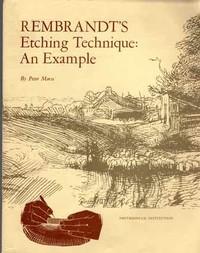Read this ebook for free! No credit card needed, absolutely nothing to pay.
Words: 22586 in 5 pages
This is an ebook sharing website. You can read the uploaded ebooks for free here. No credit cards needed, nothing to pay. If you want to own a digital copy of the ebook, or want to read offline with your favorite ebook-reader, then you can choose to buy and download the ebook.
PREFACE DURING the last decade of Peter Cooper's life, the writer of this biographical sketch enjoyed some degree of intimacy with him, as professional adviser and traveling companion, and also, incidentally, as consulting engineer of the firm of Cooper and Hewitt, and manager of a department in the Cooper Union. This circumstance, together with the preference kindly expressed by Mr. Cooper's family, doubtless influenced the selection of the writer for the honorable task of preparing this book,--a task which was welcome as a labor of love, though the execution of it has been hindered and impaired by the demands of other duties. The real difficulty has been to compress within the prescribed limits a story covering so many years and so many topics, yet not possessing those features of dramatic action or adventure which could be treated briefly, with picturesque effect.
Mr. Cooper's family has kindly furnished abundant material for this work, including, besides his own published utterances, the notes of the stenographer to whom Mr. Cooper, in the last years of his life, dictated his "reminiscences." The use which has been made of these will be evident to the reader. Beyond an occasional revelation of the character of the speaker, or a side-light thrown upon the manners and conditions of our early national life, they have not furnished valuable data; and the study of them suggests an observation which may be heeded with advantage in similar cases hereafter, though it comes too late to be useful in this instance, namely, that the recollections of old people with retentive memories, like Peter Cooper, may be invaluable, if they are intelligently aroused and guided; but if the speakers are left to their own initiative, they are too likely to furnish superfluous accounts of events already described more accurately in authentic contemporaneous records.
It has not been practicable to preserve, in the treatment of the subject, a strictly chronological order. As the titles of the several chapters indicate, the different lines of Mr. Cooper's activity have been considered, to some extent, separately, so that their periods overlap each other.
This sketch of Mr. Cooper's career furnishes the elements of an analysis, which I introduce here, as a guide in the interpretation of what is to follow.
Some further observations concerning the secret of the universal esteem and affection enjoyed by Mr. Cooper will be reserved for the closing chapter.
PETER COOPER
ANCESTRY
OBADIAH COOPER, who, with his two brothers, came from England to the colony of New York about 1662, belonged, as we may infer with confidence, to that sturdy class of republican yeomanry which found the restored reign of the Stuarts intolerable. He settled at Fishkill-on-the-Hudson; and his son Obadiah--whom tradition declares to have been the fourth white man child born in what is now Dutchess County--was the great-grandfather of Peter Cooper. In 1720 an Obadiah of the next generation followed, and of his son John, born in 1755, Peter Cooper was the fifth child.
John Cooper came of age in the year of the Declaration of Independence. In the issue between the British government and the American colonies his choice could not be doubtful. He followed the traditions of his family. Indeed, it is now well established and universally admitted that the patriots of the American Revolution were not in fact arrayed against England. They were engaged in a struggle which was but a part of the great conflict waged against shortsighted and obstinate tyranny by Englishmen on both sides of the ocean, and in which the victory for liberty was won on this side sooner than on the other. What the Coopers and their kind achieved here was applauded openly in the mother country by the descendants of a common ancestry as a triumph for the common cause. The use of foreign mercenaries under British commanders in this country was the direct result of the impossibility of inducing Englishmen to enlist for service against their American kinsmen. Hence when John Cooper, of Fishkill, abandoned in 1776 the business he had just established as a hatter, and became sergeant in a company of "minute-men," he was but pursuing the course indicated both by his own convictions and by the history of his fathers and the sympathies of the party in England to which they had belonged. It was Freedom's battle "handed down from sire to son."
He served subsequently for two years in the Continental line, and for the last four years of the war as a lieutenant in the New York militia, actively employed in the perilous service of protecting life, property, and the public stores in the zone of debatable territory,--the "bloody ground" which surrounded the British lines in New York. At the close of the war, New York having been evacuated by the enemy, Lieutenant John Cooper retired to civil life, and resumed business as a hatter in that city,--a worthy example of that American citizen soldiery which has always been equally ready to leave the ways of peace for its country's defense, and to return to them when the exigency had passed.
It was in 1779, during his military service, that John Cooper married Margaret, the daughter of John Campbell, a deputy quartermaster-general in the Continental army, and a trusted agent of Washington. The outbreak of hostilities in 1776 had found John Campbell a prosperous merchant and owner of real estate in New York city. He at once lent to the Revolutionary government eleven hundred guineas,--the whole of his ready money,--entered the service, was made deputy quartermaster-general, and was directed to superintend the hasty evacuation of the city by the Whig inhabitants, and to protect them and their property as far as possible. Lingering too long to assist some of the laggards, he was captured by the forces landed from the British fleet, but was subsequently released; and he made a temporary home at Fishkill while actively engaged in establishing the lines by which the British army, though holding the city and commanding its access to the sea, was practically besieged. General Campbell served throughout the war, and after hostilities had ceased commanded the troops at West Point until they were finally disbanded in 1785.
It is easy to imagine how the young lieutenant and the daughter of the commander who must have been frequently brought into personal relations with him may have met and loved and wedded in the midst of those troublous times, but the romance would have no special bearing on this history. It is enough to say that by this marriage the best blood of England and Scotland--of servants of God and lovers of freedom--was blended in the nine children, seven sons and two daughters, of whom Peter Cooper--born February 12, 1791, in Little Dock Street, New York--was the fifth.
Free books android app tbrJar TBR JAR Read Free books online gutenberg
More posts by @FreeBooks

: Bertie and the Gardeners; or The Way to be Happy by Leslie Madeline - Children Conduct of life Juvenile fiction; Siblings Juvenile fiction; Fathers and sons Juvenile fiction; Country life Juvenile fiction


: Rembrandt's Etching Technique: An Example by Morse Peter - Rembrandt Harmenszoon van Rijn 1606-1669








